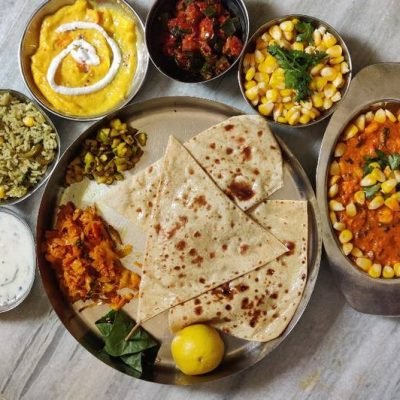
Exploring the Jain Food Culture: A Journey into Compassionate Eating
Jainism, one of the world’s most ancient religions, is deeply rooted in the principle of ahimsa (non-violence). This belief shapes not only the moral and spiritual lives of its followers but also their dietary habits. The Jain food culture revolves around the idea of minimizing harm to all living beings, making it one of the most thoughtful and ethical dietary practices. The Jain food blog on the IJRF (Indian Jain Religious Foundation) website delves into this fascinating world of Jain cuisine, offering insights, recipes, and the philosophical underpinnings of this compassionate way of eating.
The Core Philosophy Behind Jain Food
At the heart of Jainism is the commitment to non-violence. This extends beyond actions and speech, encompassing the diet as well. Jains avoid eating foods that involve harm or death to living beings, including animals and plants. This is why Jain food is strictly vegetarian, and in many cases, goes further than common vegetarian practices by excluding root vegetables like onions, garlic, potatoes, and carrots. The reason behind this is that uprooting these vegetables causes the death of the entire plant, whereas harvesting fruits, grains, and leafy vegetables allows the plant to continue living.
Additionally, Jain food avoids consumption during certain times of the day or year when harming microorganisms in the air or soil is more likely, such as during monsoon seasons. This mindfulness extends to the use of pure, clean ingredients, and the cooking process, which is kept as simple and natural as possible to reduce unintended harm.
The Essence of Jain Cooking
Jain cooking is known for its simplicity and purity. The cuisine emphasizes the use of fresh, seasonal, and minimally processed ingredients. It is not only about avoiding certain foods but also about enhancing well-being and consciousness. Cooking is seen as a spiritual activity, where the mood and mindset of the cook can influence the food. For example, traditional Jain cooking encourages peaceful thoughts, and many Jains prepare meals with a calm and focused mind.
Typical Jain meals include grains, pulses, vegetables that grow above the ground, and dairy products. Ingredients like green leafy vegetables, fruits, lentils, and beans are commonly used in dishes, providing essential nutrients without harming plants or animals. Spices are used sparingly, as the focus is on maintaining the natural flavors of the ingredients. Despite these restrictions, Jain cuisine offers a wide variety of dishes, rich in taste and nutrition.
Some well-known Jain dishes include dal, a lentil soup; roti, a type of flatbread; and sabzi, a vegetable curry made with non-root vegetables. Snacks like khandvi (a rolled, steamed chickpea flour snack) and sweets like shrikhanda (a yogurt-based dessert) are also integral to Jain food culture. These dishes exemplify the balance between taste, health, and non-violence.
Modern Takes on Jain Food
In recent years, the Jain food tradition has adapted to the modern world while retaining its core principles. With an increasing interest in ethical eating and plant-based diets globally, Jain cuisine resonates with people beyond the Jain community. The Jain Food blog on the IJRF website highlights modern takes on classic recipes, offering creative ways to enjoy traditional dishes without compromising the values of non-violence and sustainability.
For example, Jain adaptations of popular global cuisines such as Jain pizza, Jain pasta, and Jain-friendly versions of international salads show how this ancient dietary practice can be both relevant and innovative. The blog also addresses how Jain food aligns with contemporary concerns like environmental sustainability, animal welfare, and healthy living.
A Culinary Path to Mindful Living
For those exploring a more compassionate and mindful way of eating, Jain cuisine offers a rich, ethical, and flavorful experience. The Jain Food blog on IJRF is a valuable resource for anyone looking to learn more about this unique tradition. It provides recipes, cooking tips, and insights into how Jainism’s ancient teachings on non-violence are embodied in food choices. Whether you’re looking for wholesome vegetarian recipes or interested in the spiritual aspects of eating, this blog opens a door to a world where food is not just nourishment but a path to greater compassion and mindfulness.
Conclusion
The Jain food culture, as detailed in the IJRF blog, offers more than just a diet; it represents a way of living that prioritizes harmony with nature, respect for life, and the pursuit of spiritual purity. As interest in ethical eating grows worldwide, the timeless wisdom of Jain cuisine has much to offer modern food enthusiasts seeking a meaningful connection between their meals and their values.
